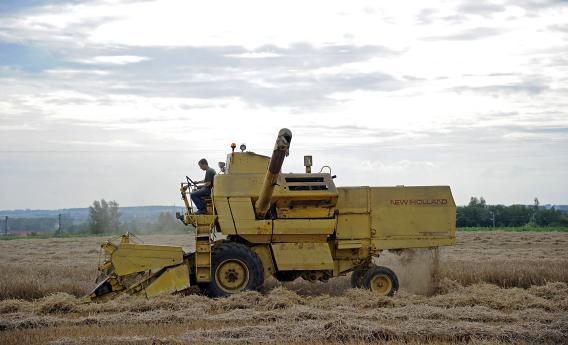Derek Thompson throws a bit of cold water on excessive hand-wringing over robots taking our jobs, but I want to throw more and icier water on this. The deployment of labor-saving technology is a real thing and people really do lose their jobs over it. But the use of the word “robots” as a synonym for “labor-saving technology” is a rhetorical trick to make long-standing trends seem new and alarming. The cotton gin was labor-saving technology. So was the forklift and the shipping container. Typesetters were put out of work by desktop publishing software in the late-’80s and early ‘90s, and digital photography cost jobs in the film development sector. Better tractors and mechanized reapers have reduced demand for farm labor, and thanks to voice mail and email there’s less demand for secretaries than there used to be.
None of this involves “robots,” (unless everything related to computers is robots) but it all involves productivity-enhancing technological progress that increases overall economic output while negatively impacting specific individuals. I don’t want to say that there’s nothing new here. Each new thing is new. The displacement of retail checkout workers by self-checkout machines is a different thing from the displacement of lumberjacks by giant log-picking-up-machines in the sense that these are different sectors of the economy and they impact different specific individuals. But the basic trend is by no means novel, and the tendency to want to explain the current period of prolonged labor market weakness—which really is new and unusual—in terms of the long-term trend toward the invention and deployment of labor-saving machines is strange.
